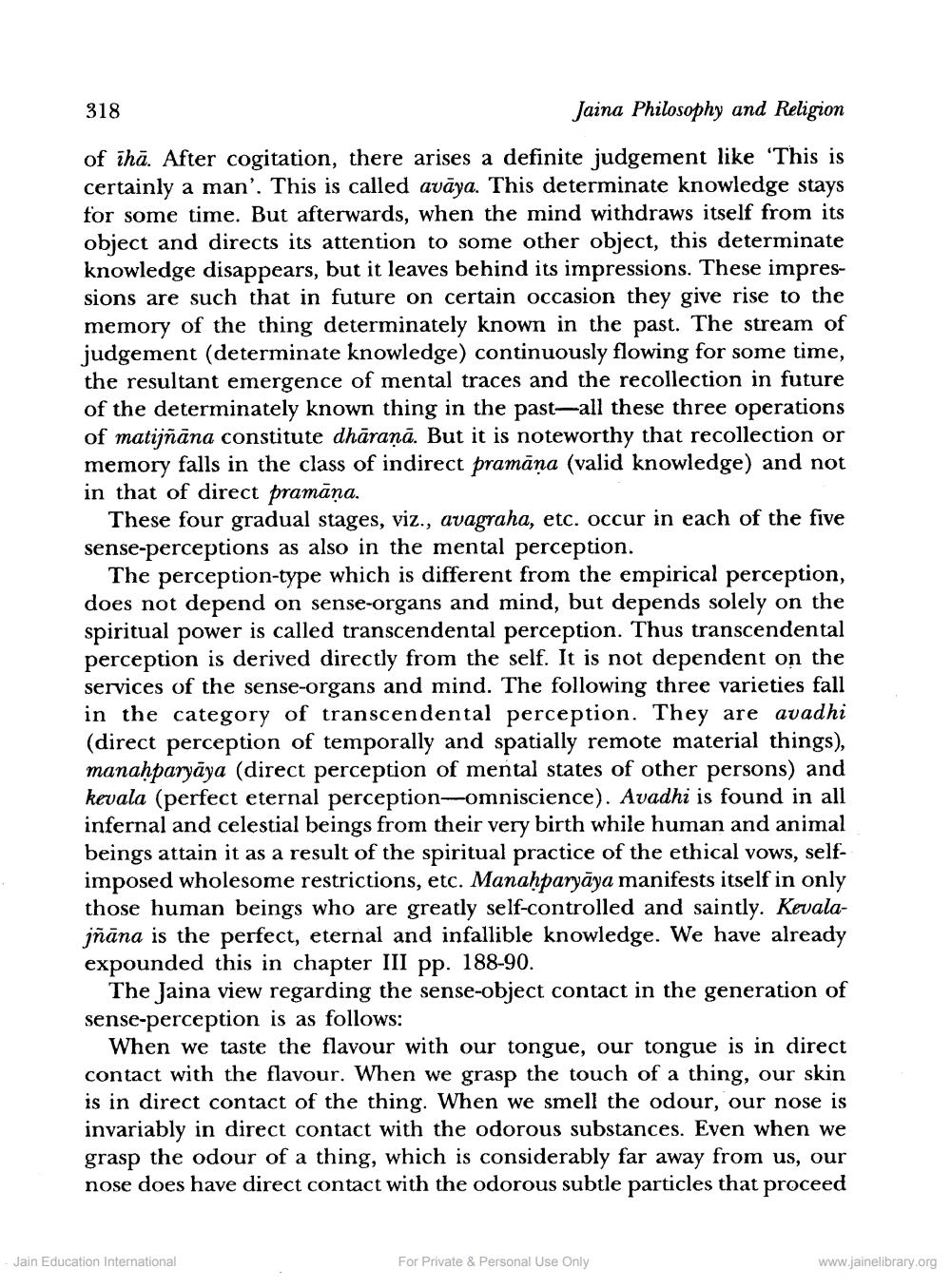________________
318
Jaina Philosophy and Religion
of ihā. After cogitation, there arises a definite judgement like 'This is certainly a man'. This is called avāya. This determinate knowledge stays for some time. But afterwards, when the mind withdraws itself from its object and directs its attention to some other object, this determinate knowledge disappears, but it leaves behind its impressions. These impressions are such that in future on certain occasion they give rise to the memory of the thing determinately known in the past. The stream of judgement (determinate knowledge) continuously flowing for some time, the resultant emergence of mental traces and the recollection in future of the determinately known thing in the past-all these three operations of matijñāna constitute dhāraņā. But it is noteworthy that recollection or memory falls in the class of indirect pramāna (valid knowledge) and not in that of direct pramāna.
These four gradual stages, viz., avagraha, etc. occur in each of the five sense-perceptions as also in the mental perception.
The perception-type which is different from the empirical perception, does not depend on sense-organs and mind, but depends solely on the spiritual power is called transcendental perception. Thus transcendental perception is derived directly from the self. It is not dependent on the services of the sense-organs and mind. The following three varieties fall in the category of transcendental perception. They are avadhi (direct perception of temporally and spatially remote material things), manahparyāya (direct perception of mental states of other persons) and kevala (perfect eternal perception-omniscience). Avadhi is found in all infernal and celestial beings from their very birth while human and animal beings attain it as a result of the spiritual practice of the ethical vows, selfimposed wholesome restrictions, etc. Manahparyāya manifests itself in only those human beings who are greatly self-controlled and saintly. Kevalajñāna is the perfect, eternal and infallible knowledge. We have already expounded this in chapter III pp. 188-90.
The Jaina view regarding the sense-object contact in the generation of sense-perception is as follows:
When we taste the flavour with our tongue, our tongue is in direct contact with the flavour. When we grasp the touch of a thing, our skin is in direct contact of the thing. When we smell the odour, our nose is invariably in direct contact with the odorous substances. Even when we grasp the odour of a thing, which is considerably far away from us, our nose does have direct contact with the odorous subtle particles that proceed
Jain Education International
For Private & Personal Use Only
www.jainelibrary.org




